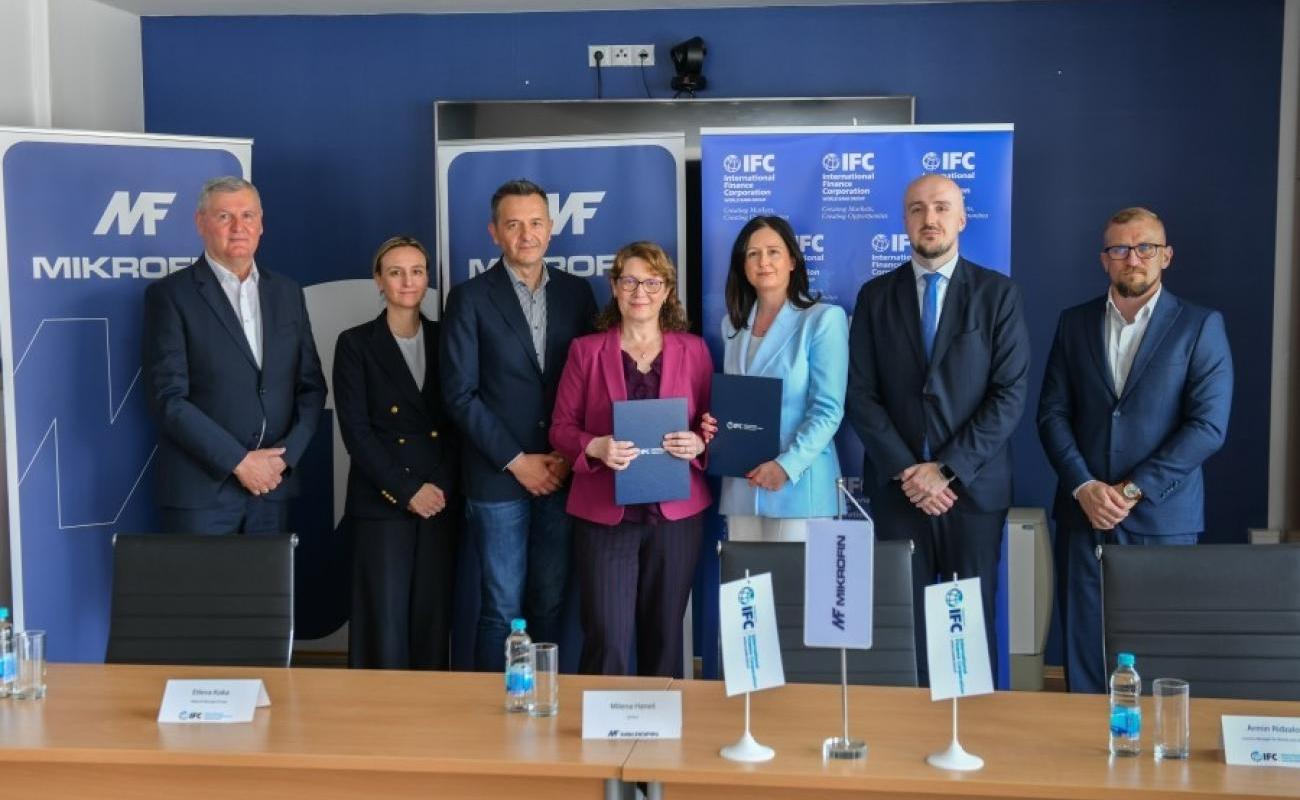IFC Boosts Finance for Women Entrepreneurs, Climate Investments in Bosnia and Herzegovina

IFC to provide €20 million loan to Mikrofin, Bosnia and Herzegovina’s leading microfinance institution.
· At least 50% of proceeds will support women-owned businesses; 25% to finance climate-related projects.
Banja Luka, Bosnia and Herzegovina, May 23, 2025—To help close financing gaps for women entrepreneurs and accelerate climate-related investments, IFC is providing a €20 million loan to Mikrofin d.o.o. Banja Luka (Mikrofin), the leading microfinance institution in Bosnia and Herzegovina. The funding aims to improve access to credit for micro and small enterprises (MSEs), with at least 50 percent allocated to women-owned businesses and at least 25 percent to eligible green projects.
Access to finance remains a persistent constraint in Bosnia and Herzegovina, where domestic credit to the private sector stood at just 43.5 percent of GDP in 2023—well below the EU average of 77.6 percent. Although MSEs account for 99 percent of all businesses, 47 percent of employment, and 44 percent of value added, they continue to struggle with financing, hindering their capacity to grow and create jobs.
“Establishing a credit-based partnership with IFC is an important milestone for Mikrofin, as it will support our continued growth and development,” said Milena Haneš, Director at Mikrofin. “In addition to financing, we will benefit from working with IFC’s experts, who will provide advisory support to help us strengthen key areas of our operations.”
Women entrepreneurs face significant barriers to finance, including limited asset ownership, gender bias, and exclusion from formal networks. Many operate informally and remain outside the reach of traditional lenders. By dedicating half of the loan proceeds to women-owned businesses, the project will help reduce the financing gap and support women in growing resilient, income- and job-generating enterprises.
Green finance in Bosnia and Herzegovina faces challenges due to limited regulatory incentives, fragmented governance, and the need for enhanced technical capacity among lenders. The country is the second highest emitter in the Westerns Balkans region, accounting for 22 percent of total emissions. Through this investment, Mikrofin will expand financing for climate-friendly solutions such as energy-efficient home upgrades, rooftop solar systems, and clean heating technologies—helping households and small businesses lower energy costs and reduce emissions.
“This investment addresses IFC`s two key priorities for Bosnia and Herzegovina—inclusive growth and environmental sustainability,” said Etleva Koka, IFC’s Manager for Financial Institutions in Europe. “It reflects our strategy to strengthen non-bank financial institutions as a means to reach underserved markets, support the growth of micro and small businesses, and contribute to job creation.”
The project is bolstered by IFC’s Advisory Services, which will support Mikrofin in evaluating and improving its environmental and social management systems, ensuring growth remains both inclusive and responsible.
IFC has been present in the country for more than 30 years, driving positive change by reforming the business environment, enhancing environmental, social, and corporate governance, and creating opportunities.
